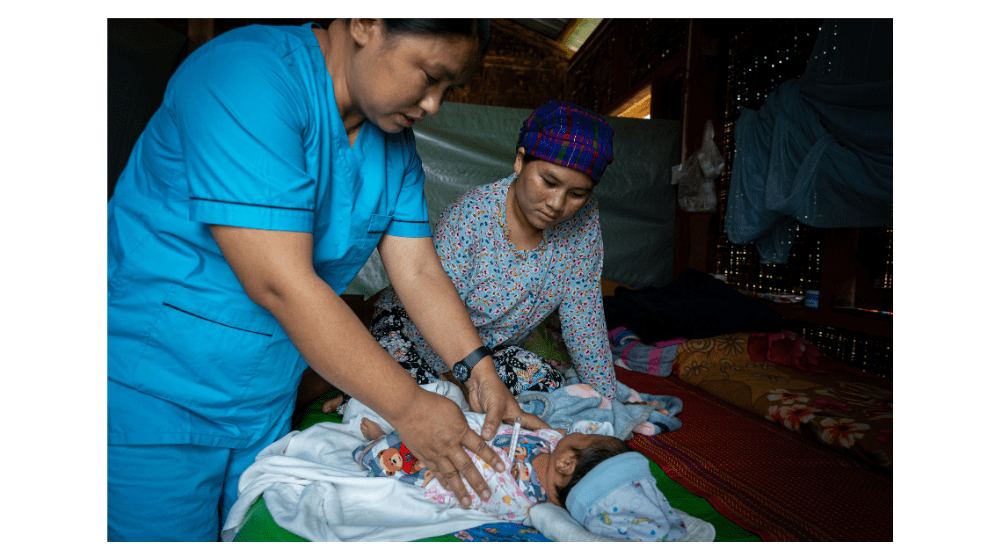PHOTO STORY
In Kachin State, where displacement and hardship has intensified due to the conflict, local midwife Lamawng Lum Naw serves as a vital pillar of hope and health for the vulnerable population. Lamawng has dedicated her life to providing essential healthcare and to upholding the rights of women and girls under challenging conditions. This is her inspiring story.
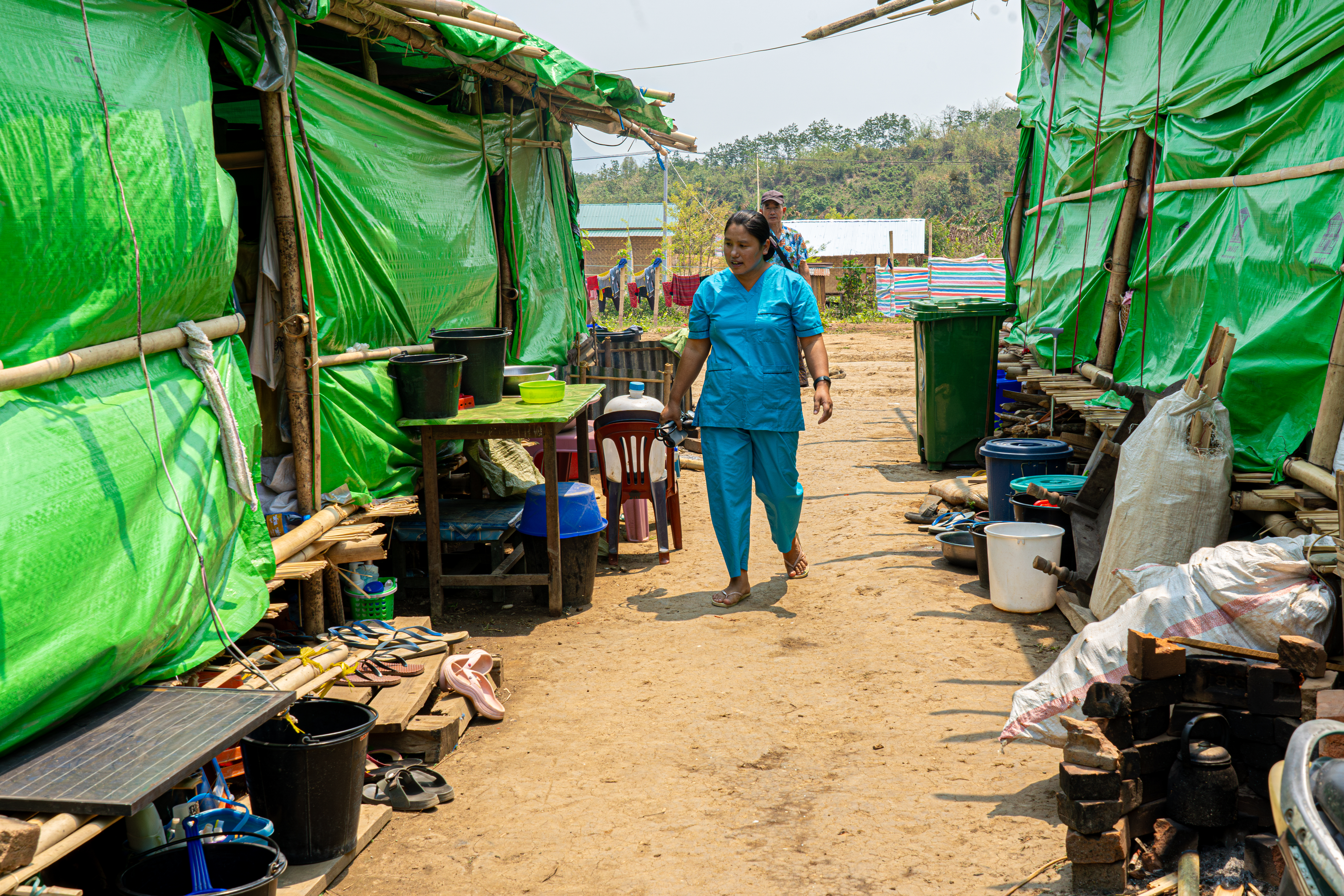
As the first light touches the camp, Lamawng organizes her medical kit, inspired by the resilience of the community she serves. Her dedication sets the tone for a day committed to helping those displaced by the armed conflict.
"I became a trained midwife when I was 18 in order to serve my community and thought that the best way was to ensure that women and girls had access to essential healthcare"
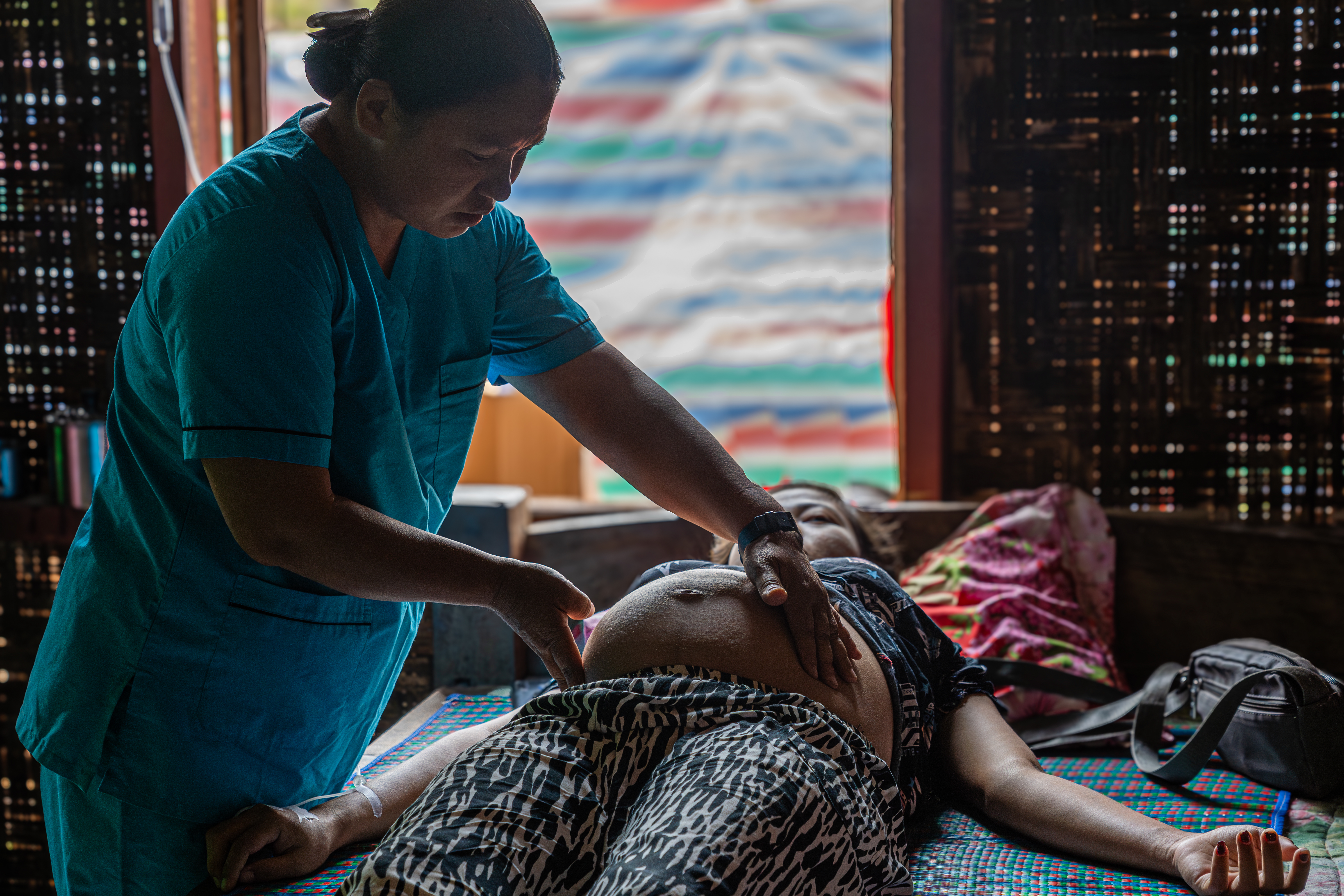
In the temporary shelter at the camp, Lamawng readies herself to assist women and girls, transforming a simple space into a life-saving facility. Her expertise serves as a comforting presence for an expectant mother at the camp anxious about her baby’s health.
"Displaced Women staying in camps, including pregnant women, need essential health care and family planning services. There is no proper delivery room here. We have to use a tarpaulin to set up a temporary room for delivery."

As the only midwife at the camp for Internally Displaced People, Lamawng assists pregnant women before, during and after childbirth, and in many instances she deals with life-threatening complications. Her professional skills and her quick intervention to identify potentially life-threatening conditions, stabilize patients and refer them promptly to the nearest facility underscores the lifesaving power of midwives for women at risk, compounded in this case by the exacerbated needs for essential reproductive health services in these camps.
"One of the most memorable moments in my career occurred when I was called to assist a young woman suffering a severe hemorrhage during childbirth. She had lost a significant amount of blood, necessitating immediate medical attention. Despite the severity of her condition, we managed to transport her to a hospital on time, ultimately saving her life. Emergency hospital referrals can be exceptionally challenging here, particularly due to travel restrictions at night, which compounds the risks for pregnant women in the camp. The relief I felt upon her recovery was a defining moment in my life, and gave me a sense of purpose that I have carried with me ever since."
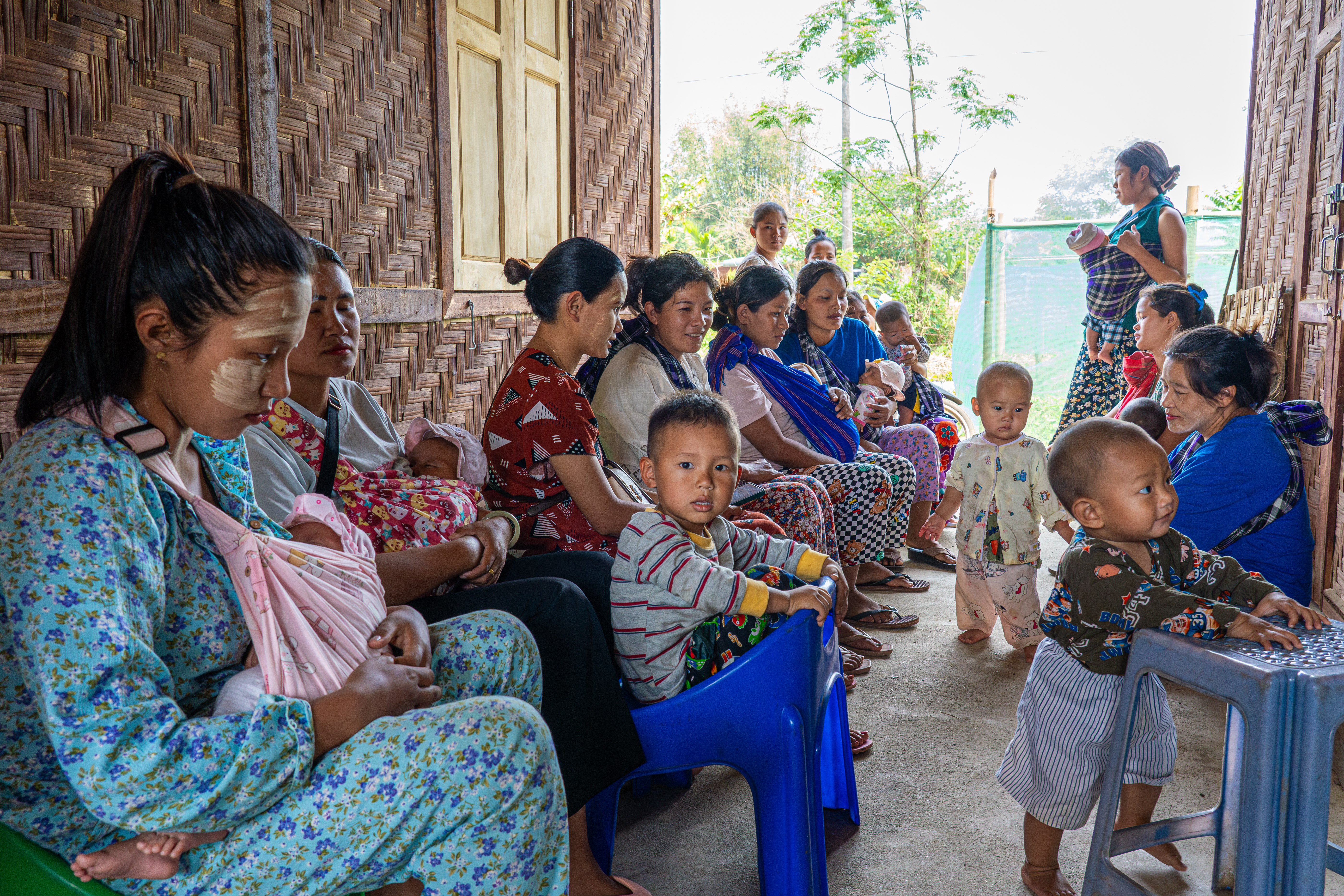
Gathered under the shade of a tent, local women listen carefully as Lamawng explains the importance of planning their pregnancies, utilizing her role to advocate for their reproductive rights, and the benefits of contraception for spacing their pregnancies and for achieving the desired number of children.
“Every woman must be aware of her rights regardless of who they are and where they live. This is particularly important for displaced women and girls."
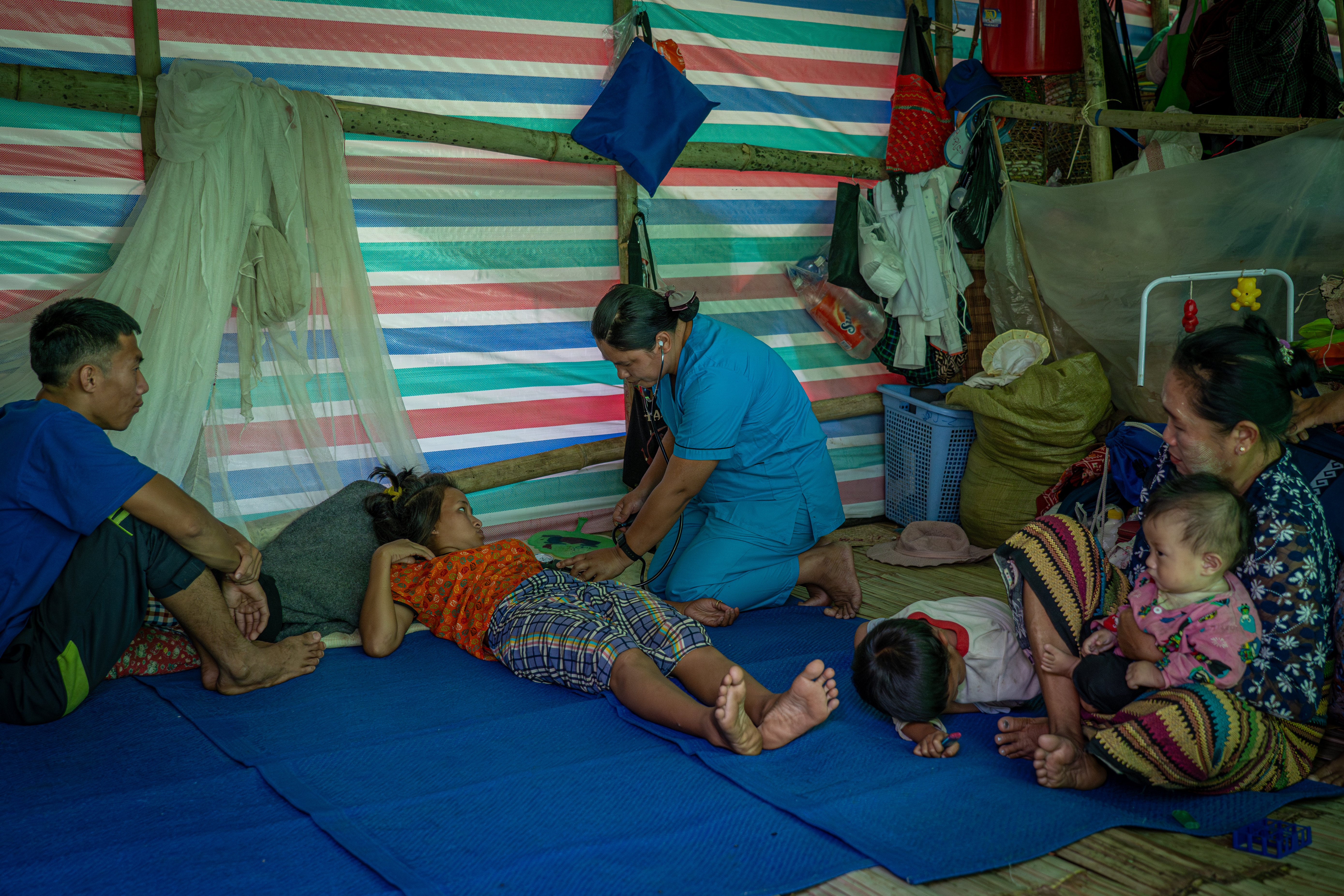
Lamawng provides primary health care for women and girls at the IDP camp, exemplifying her important role in maintaining the health of the community, even beyond to maternal health care and services.
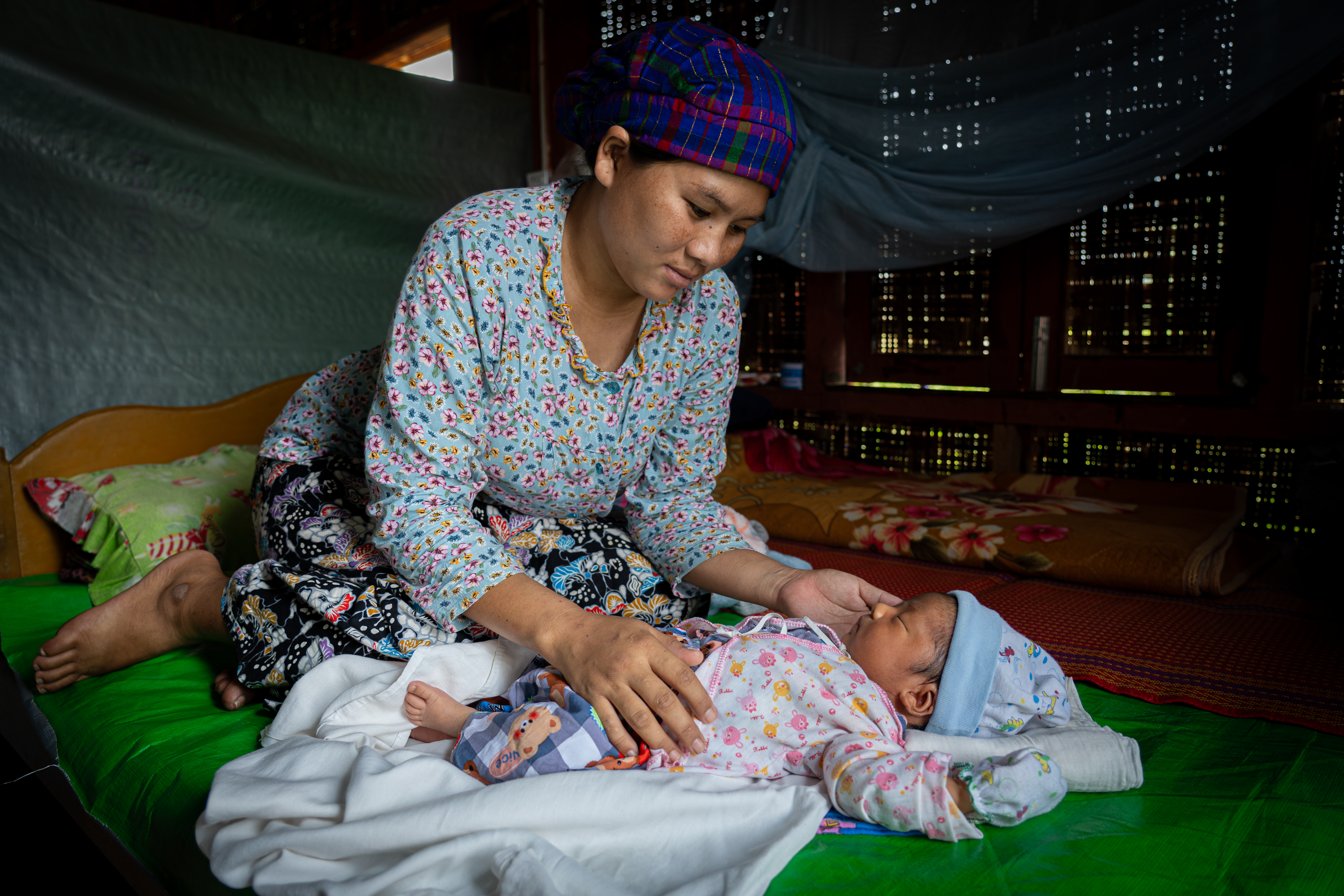
“My journey as a midwife, especially here among those displaced by conflict in Kachin, is marked by long, arduous days that can be physically and emotionally draining. Yet, it is in these moments—seeing the smiles of mothers who I've assisted, witnessing their joy and relief—that fuel my commitment to this calling. Each smile not only brings joy but also renews my strength and dedication to continue serving the women and girls of this community."

With 3 million IDPs in Myanmar, the resilience and dedication of midwives like Lamawng are crucial in providing lifesaving services in challenging environments like IDP camps. Well-trained midwives working in a fully functional environment could help avert two thirds of all maternal and newborn deaths.
UNFPA, the United Nations Sexual and Reproductive Health Agency, has played a significant role in supporting midwives across Myanmar. In 2023, UNFPA expanded its support to include regions affected by humanitarian crises, enhancing midwifery through training and strengthening networks among healthcare professionals. This support, which has been vital in improving emergency maternal healthcare and in ensuring midwives are well-prepared to face the challenges in these demanding environments, is being redoubled in 2024.

